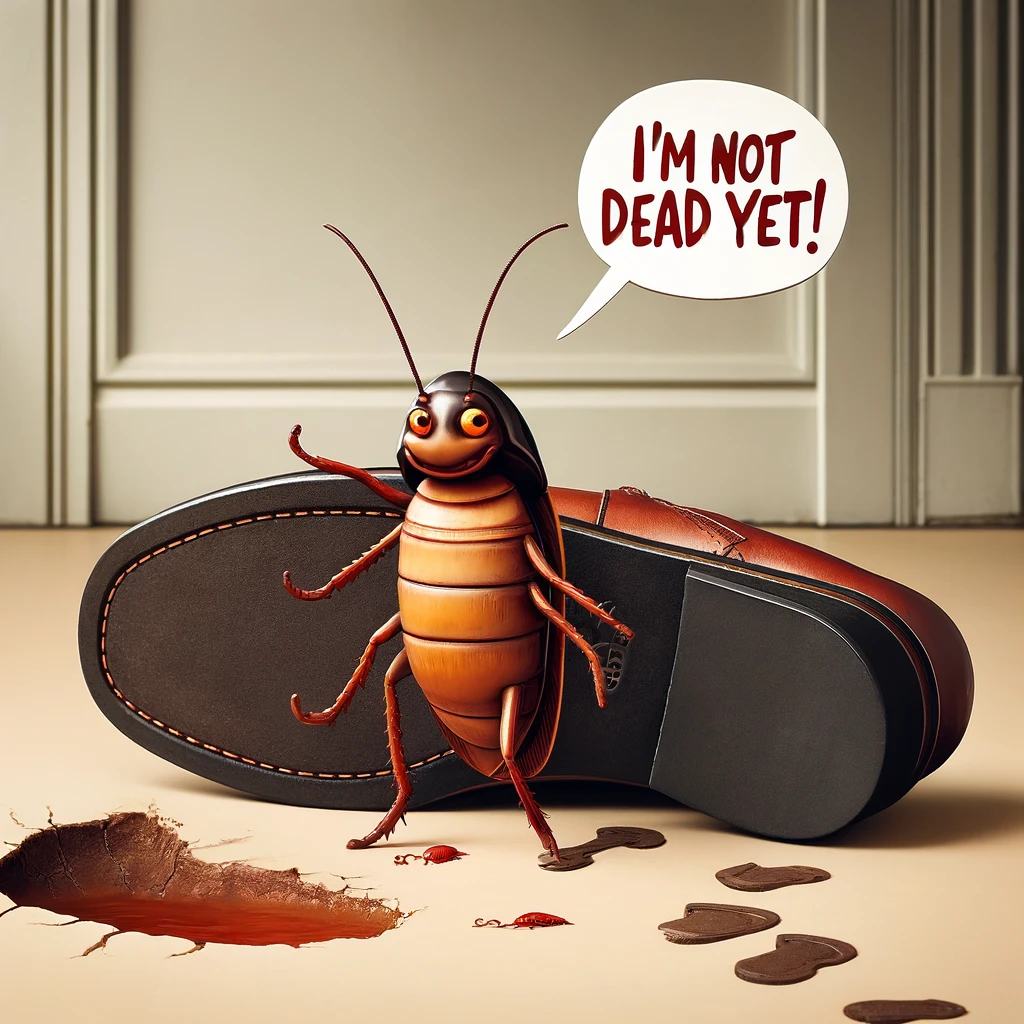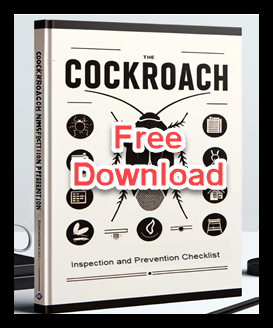Do Cockroaches Feel Pain?
 The question of whether cockroaches feel pain is a topic that piques the curiosity of many people, especially those dealing with infestations or considering humane pest control options. Understanding the sensory experiences of cockroaches can provide insights into their behavior and inform more compassionate approaches to pest management. In this article, we’ll explore the current scientific understanding of whether cockroaches feel pain, how their nervous systems function, and what this means for pest control practices.
The question of whether cockroaches feel pain is a topic that piques the curiosity of many people, especially those dealing with infestations or considering humane pest control options. Understanding the sensory experiences of cockroaches can provide insights into their behavior and inform more compassionate approaches to pest management. In this article, we’ll explore the current scientific understanding of whether cockroaches feel pain, how their nervous systems function, and what this means for pest control practices.
Understanding Pain Perception
Definition of Pain
Pain, in a biological context, is an unpleasant sensory and emotional experience associated with actual or potential tissue damage. In mammals, pain involves complex processes in the nervous system and brain, leading to conscious awareness and emotional responses.
Nociception vs. Pain
- Nociception: The detection of harmful stimuli by sensory neurons called nociceptors. This process can trigger reflex responses to avoid damage.
- Pain: A conscious experience that includes the emotional and psychological aspects of discomfort.
Cockroach Nervous System
Anatomy and Function
Cockroaches have a decentralized nervous system consisting of a brain and a series of ganglia (nerve cell clusters) distributed along their body. This structure allows them to perform complex behaviors even if part of their nervous system is damaged.
- Brain: Controls basic functions and behaviors.
- Ganglia: Each segment of the body has its own ganglia that control localized movements and reflexes.
Can Cockroaches Feel Pain?
Scientific Perspective
Current scientific evidence suggests that cockroaches, and insects in general, do not experience pain in the same way that humans and other animals with more complex nervous systems do. Here’s why:
- Lack of Emotional Response: Insects do not have the brain structures required for emotional responses, which are essential components of the pain experience.
- Reflexive Responses: Insects respond to harmful stimuli with reflexive actions rather than conscious, emotional reactions. For example, a cockroach might withdraw a leg if it senses heat, but this is a reflex rather than an experience of pain.
Studies and Research
Research on insect nociception shows that while insects can detect and respond to harmful stimuli, they do not process these signals as pain. Instead, their responses are automatic and aimed at survival rather than conscious suffering.
Ethical Considerations in Pest Control
Humane Practices
Understanding that cockroaches do not feel pain like humans does not negate the importance of humane pest control practices. Ethical considerations still play a role in how we manage pest populations.
Effective and Compassionate Methods
- Preventive Measures: Focus on preventing infestations through cleanliness, sealing entry points, and reducing moisture.
- Non-Toxic Solutions: Use traps and baits that do not cause prolonged suffering.
- Professional Pest Control: Hire professionals who use humane and effective methods for managing infestations.
While cockroaches do not feel pain in the same way that humans do, they are capable of detecting harmful stimuli and responding reflexively. This understanding can guide more informed and humane approaches to pest control. By focusing on preventive measures and using ethical pest management strategies, we can effectively deal with cockroach infestations without unnecessary cruelty.
If you’re dealing with a cockroach problem, consider humane and effective pest control options. Preventive measures, non-toxic solutions, and professional pest control services can help you manage infestations responsibly and compassionately. For more information on humane pest control practices, explore our other articles and resources.
- The Life Span of a Cockroach
- Do Cockroaches Eat Clothes?
- Do Cockroaches Have Teeth?
- Shrimps and Cockroaches
- Will Sleeping with the Light On Keep Cockroaches Away?
- How to get roaches out of your car overnight
- Do Cockroaches Feel Pain?
- How Many Legs Do Cockroaches Have?
- Comparing Cockroach Eggs Size for Different Types of Cockroaches
- Identifying a Cockroach Bite on the Lips or Face
- Black Water Bug Identification and Control
- Why Do Water Bugs Come Out At Night?
- What Does Roach Rash Look Like?
- Can Cockroaches Bite Your Eyelid?
- Can Cockroaches Live in Your Balls?
- How did cockroaches get their name?
- Why Do Cockroaches Shed Their Skin?
- What Smell do Palmetto Bugs Hate?
- Baby Palmetto Bug: Identification and Control
- Cockroach Eggs vs Poop: How to Tell the Difference
- How to Get Rid of Water Bugs
- How Long Can a Cockroach Live Without Air?
- The Lifecycle of the German Cockroach: From Egg to Adult
- Do Mice Eat Roaches
- Wood Roach vs. Cockroach

